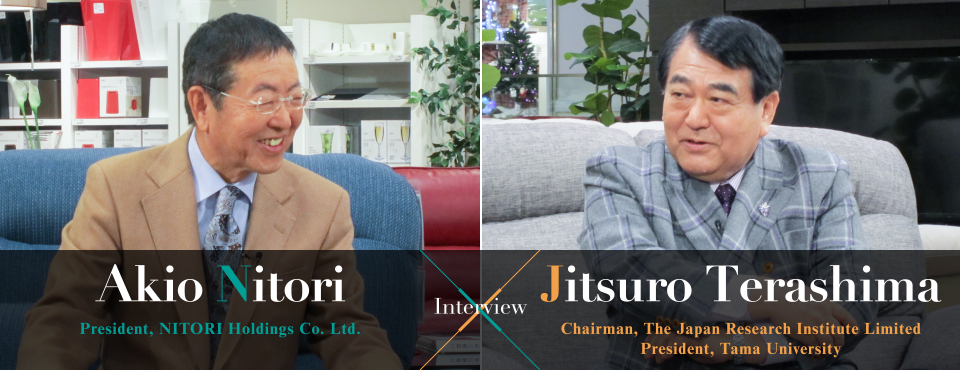Note: Broadcast as part of “Hodo Live 21 INsideOUT: Course in Modern Business/Learning about the World” on BS11, on November 20, 2015

NITORI actively engages in dialogue with outside experts in order to objectively assess the
validity of the company’s business models and growth strategies.
NITORI Group President, Akio Nitori, recently sat down for a dialogue with Jitsuro Terashima,
host of “Jitsuro Terashima’s Academy of the Future – Extra Reading for Understanding the
Modern World” on BS11 (entitled “Hodo Live 21 INsideOUT: Course in Modern
Business/Learning about the World” at the time of the dialogue).
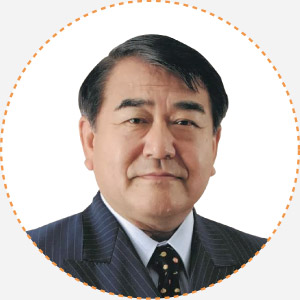
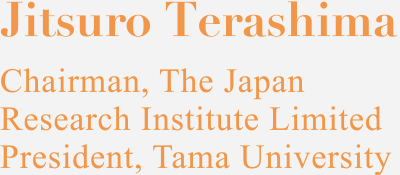

Born in 1947 in Hokkaido, Jitsuro Terashima went on to obtain a Master’s degree from the Waseda University Graduate School of Political Science, before joining Mitsui & Co. After working in the U.S., he later served as an Executive Managing Officer at Mitsui & Co.in New York and Washington, and as President and Chairman of the Mitsui Global Strategic Studies Institute. In 2010, he received an honorary doctorate from Waseda University. Terashima is currently a member of the Advisory Committee for Natural Resources and Energy Strategic Policy Subcommittee at the Agency for Natural Resources and Energy (Ministry of Economy, Trade and Industry). In addition to appearing on the TBS show “Sunday Morning,” he has written for countless publications, including the most recent “Closing in on an Understanding of the Middle East, Energy and Geopolitics” (Toyo Keizai Shinpo-sha, August 2016).
- Terashima
- Having started out as just a single furniture shop in 1967, NITORI has continued to grow into the company it is today. Reading articles on your background in the Nikkei Shimbun, I got the impression that the crucial turning point was your experience in the U.S.
- Nitori
- I went on a study tour to the U.S. in 1972 and visited well-known retailers such as Sears and JCPenney. The first thing that surprised me was that these businesses had curtains, carpets, bedding and other interior goods next to items such as sofas, beds and dining tables. They were selling these items as a complete coordinated package, down to the color and style. I immediately wanted to do something similar in Japan.
- Terashima
- In the past, I assume no one had considered the idea of coordinated sales in Japan.
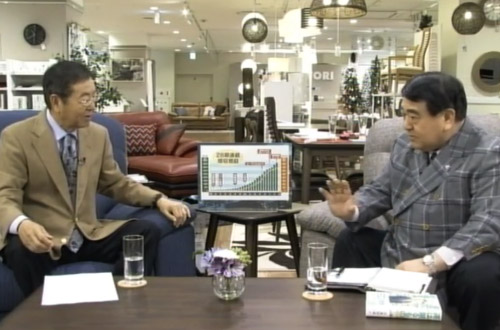
- Nitori
- It surprised me that these American sales techniques were helping add a touch of luxury to people’s lifestyles in the U.S. I was also surprised by the prices, which were about one third of those in Japan. When I began to question the reason behind this, I realized that the U.S. had an entirely different approach compared to Japan. Products and stores in Japan are designed from the point of view of manufacturers and wholesalers, but in the U.S., products and stores are designed from the point of view of consumers.
- Terashima
- This crucial difference provided you with a fresh source of inspiration. What really impresses me is that you took that discovery, or realization, and actually put it into action. That’s one of NITORI’s key strengths. You could say it’s in your DNA.
- Nitori
- Although it felt like Japan was approximately 50 years behind the U.S., at the same time, I felt a desire to do something about it. That’s when I came up with a plan to move Japan forward over the course of the next 30 to 60 years. I saw no reason why we couldn’t achieve that. We’re all just people after all.
- Terashima
- When you think of NITORI, the phrase "offering the unexpected" comes to mind. It seems however that the real starting point for NITORI as we know it today was the realization that products improving the quality of people’s lives were being sold in the U.S. for one third the price they were in Japan.
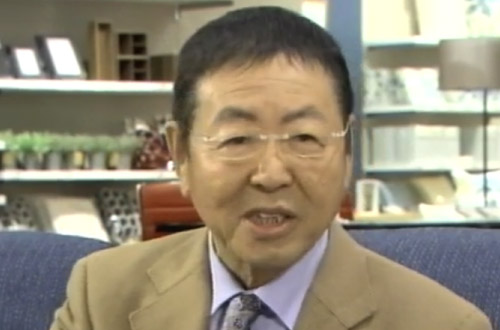
- Nitori
- Precisely. That desire to provide as many people as possible with affordable furniture is the cornerstone of our business model at NITORI.
- Terashima
- Customers can often be skeptical about the quality of cheap products, but NITORI’s current range of furniture is stylish and has a real quality feel to it, despite the price. I can’t imagine you achieved this end result with a standard business model based on buying products from manufacturers and selling them on, so what do you do differently?
- Nitori
- I did some research into how the U.S. was able to achieve that balance between price and quality and found that the secret lay in the number of stores. The theory in Japan at the time was that if you opened five or more stores, you’d never be able to manage them properly. In the U.S. on the other hand, there were plenty of examples of companies with 100 or more stores, across various industries.
- Terashima
- So you can’t lower your prices unless you’re selling in large volumes. If you start by increasing the number of stores and increasing sales volumes, then you can control things like planning, quality and materials.
- Nitori
- With that in mind, we mapped out a 30-year plan with the aim of developing stores during the first 10 years, developing human resources in the next 10 years, then harnessing those human resources to develop products and mechanisms in the final 10 years.
- Terashima
- You established a framework that enabled you to sell in large volumes, source products more cheaply and efficiently, and then took the bold step of shifting production overseas. I understand that is the basis for your low prices. I assume that it must have been extremely difficult finding supply sources in Asia and other countries. However, from a technical and quality point of view, how did you overcome those difficulties?
- Nitori
- You would ordinarily get a trading company to do that for you, but we’re essentially on our own. We found the sites ourselves, and recruited and trained staff directly. We really did do everything ourselves! Naturally, not everything went according to plan, but it’s our philosophy to absorb those risks ourselves as well.
- Terashima
- You often hear people talking about “globalization,” but it’s easier said than done. NITORI has become the company it is today by overcoming those difficulties.



